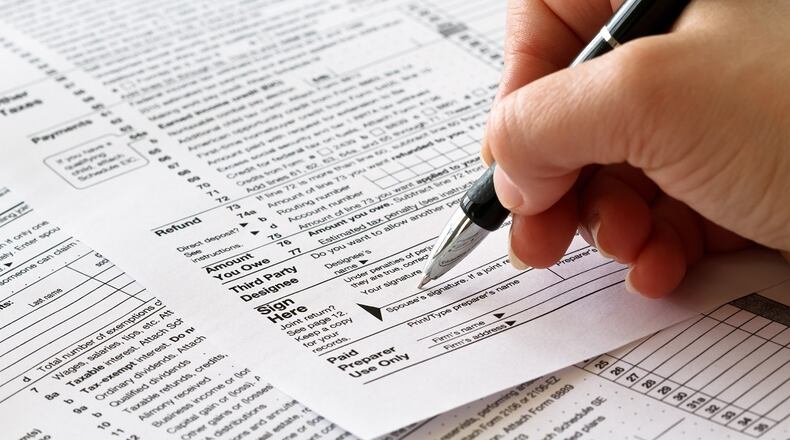RELATED: Dayton opposes state takeover of tax collections
It’s an effort to streamline the tax collection process for businesses, particularly when they must file their information with multiple local jurisdictions each year. The state would keep a half-percentage point of the taxes collected as a service fee.
State Sen. Bill Beagle (R-Tipp City) voted in favor of Gov. John Kasich’s biennial budget, but he said he does not support the provision for “centralized collections,” which was included in the legislation.
“I can see both sides of the issue, as an ex-council member in Tipp City … but also as a business owner who has to file in three different jurisdictions,” said Beagle, who owns the Hampton Group, which rents apartments in Tipp City, Troy, Piqua and outlying areas. “Trying to make it easier to file is a good goal, but as a business owner, I will continue to deal with local tax departments. I prefer to have the ability to reach out to somebody who is nearby and knowledgeable.”
MORE: New York investor pays nearly $18M for Beavercreek office buildings
About 112 municipalities have already passed resolutions to be part of the potential lawsuit, which is being prepared by the law firm Frost Brown Todd and could be filed next month, according to Kent Skarrett, executive director of the Ohio Municipal League.
“There’s a great concern that the state won’t have the same diligence for auditing and accountability,” Skarrett said. “The overarching impact (to cities) is the loss of control of that portion of their revenues … It’s a universal unifying issue for our membership.”
Local communities that have already passed resolutions to support the lawsuit include Riverside and Centerville, according to Brian Humphress, executive director of the Greater Dayton Mayors and Managers Association. Xenia council members were to consider such a resolution at their meeting Thursday and Miamisburg is to consider a resolution on Tuesday.
MORE: Beavercreek, Fairborn police to start using drone technology
Humphress said most Dayton area municipalities have passed or are in the process of passing similar resolutions.
“City tax collections are thorough and dedicated to fairness and not overpaying or underpaying. They do a good job. Most cities are questioning why,” Humphress said.
The Dayton Area Chamber of Commerce has not taken an official position on this provision that was included in the state’s two-year budget, but there are concerns, said DACC President and CEO Phil Parker. Parker said there’s concern that the state will at some point not share the full amount of local tax revenue, but also the state’s tax filing portal needs to be more “user-friendly.”
“On the surface, it looks like they’re trying to reduce red tape. We’re not quite sure if the state is ready to do it,” Parker said. “We still have not heard that the portal has been updated and is prepared to possibly collect information from thousands of businesses.”
State Sen. Steve Wilson (R-Maineville) said in a prepared statement that he is working to find a better solution.
“This change creates a number of new challenges for our local governments,” Wilson’s statement reads. “I am working with my Senate colleagues to address some of these by striking a balance which will serve to streamline duplicative processes that help businesses run more efficiently, while also helping local governments be more efficient in their collections.”
About the Author
